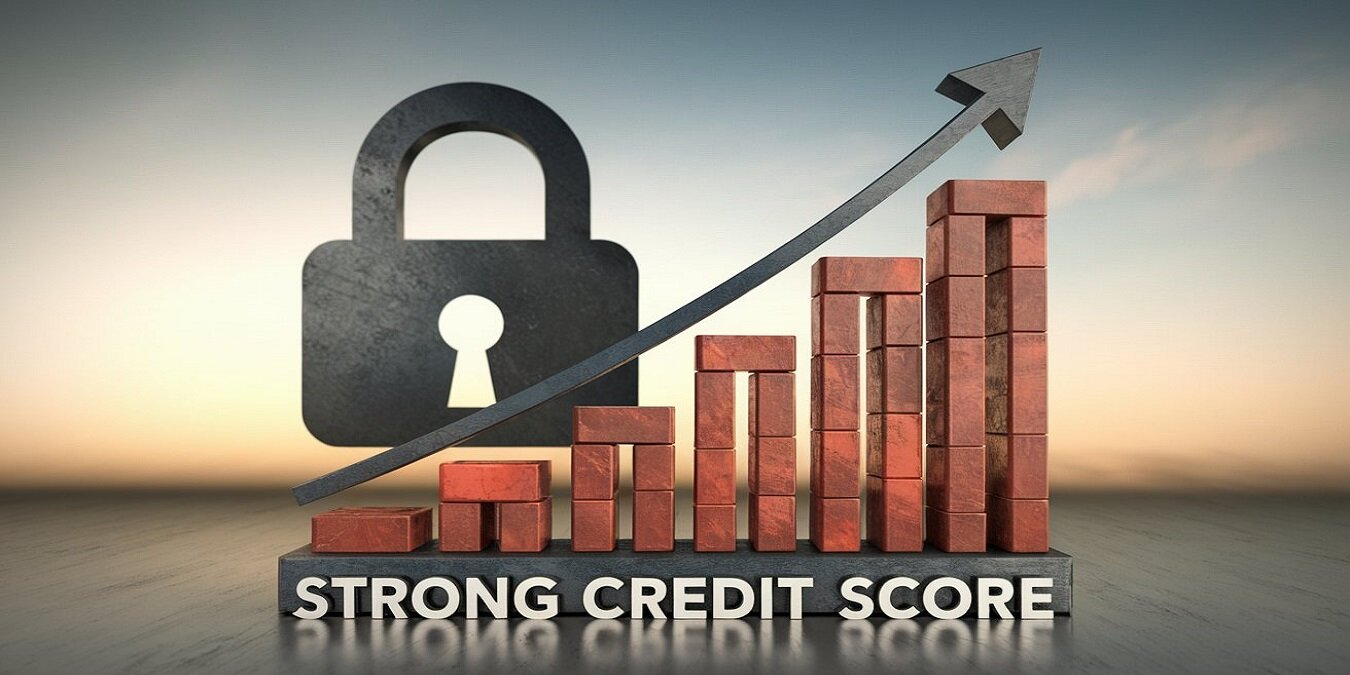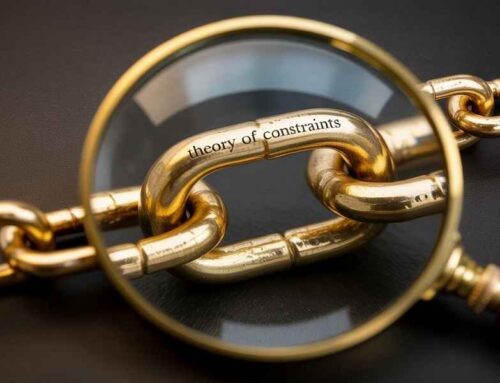
Building a Strong Credit Score in the US
What if I told you that one number has the power to influence almost every major financial decision in your life? Your ability to buy a home, secure a loan or even rent an apartment can all be affected by a three-digit number: your credit score.
What is a Strong Credit Score?
Before we dive deeper, let’s take a moment to define what qualifies as a “Strong” credit score in the U.S. Credit scores generally range from 300 to 850, with higher scores representing better creditworthiness. Here’s a breakdown of the score ranges:
- 300–579: Poor
If your score falls into this range, it will be difficult to qualify for most types of credit. Lenders may see you as a high-risk borrower. - 580–669: Fair
A score in this range is considered subprime. While you may still qualify for loans and credit cards, you will likely face higher interest rates and stricter terms. - 670–739: Strong
This is the range where most borrowers fall. A score in this range qualifies you for a wide range of financial products with competitive rates. - 740–799: Very Strong
A score here signals to lenders that you’re a very reliable borrower. You’re likely to be offered favorable terms, such as lower interest rates. - 800–850: Excellent
The gold standard. If your score is in this range, lenders will see you as an extremely low-risk borrower and you’ll qualify for the best rates and terms.
So, what’s considered a “Strong” credit score? Generally, a score of 670 or higher is considered strong, with 740 and above being ideal for accessing the most favorable credit offers.
For many, the idea of managing or improving their credit score can seem overwhelming or confusing. Maybe you’ve struggled with debt in the past or you’ve never paid attention to your credit score because you weren’t sure it mattered. Whatever your situation, you’re here because you want to build a strong credit score and I’m here to help you do just that.
In this guide, we’ll break down everything you need to know about building and maintaining a solid credit score in the U.S. This isn’t about magic tricks or quick fixes. It’s about practical, lasting solutions that will give you control over your financial future.
Step 1: Understand What Makes Up Your Credit Score
Before we dive into how to build a strong credit score, it’s important to understand what goes into it. Your credit score is determined by five main factors:
- Payment History (35%)
Do you pay your bills on time? This is the most important factor. Every missed or late payment can significantly damage your score. - Amounts Owed (30%)
Also known as credit utilization, this refers to how much of your available credit you’re using. If you max out your credit cards regularly, your score will suffer. - Length of Credit History (15%)
The longer your credit history, the better. Lenders like to see a long track record of responsible borrowing and repayment. - New Credit (10%)
Opening too many new accounts in a short period can negatively impact your score. It makes you look desperate for credit, which can be a red flag. - Credit Mix (10%)
Having a variety of credit types, like credit cards, mortgages and auto loans, shows that you can manage different kinds of credit responsibly.
Understanding these factors is the first step toward mastering your credit score. Now let’s move on to how you can take control of each one.
Step 2: Make On-Time Payments – Always
If you take only one thing from this guide, let it be this: Pay your bills on time, every time. Late payments are the single biggest factor that can damage your credit score.
But let’s be honest. Life happens. You might forget about a bill or you might be facing financial challenges that make it hard to keep up with payments. Here’s what you can do to avoid missing payments:
- Set Up Automatic Payments: Many banks and credit card companies allow you to set up autopay, so your minimum payment is always made on time.
- Use Payment Reminders: If you prefer to have more control over when payments are made, set up reminders on your phone or calendar a few days before the due date.
- Reach Out for Help: If you know you won’t be able to make a payment on time, don’t hide from it. Contact your lender and ask about your options. Many lenders offer hardship programs that can help you avoid late fees and negative marks on your credit report.
Missing even one payment can have a serious impact on your credit score, so being proactive is key.
Step 3: Manage Your Credit Utilization
You’ve likely heard the phrase “Credit Utilization,” but what does it really mean? Credit utilization refers to the percentage of your available credit that you’re using at any given time. If you have a credit card with a $5,000 limit and a $2,500 balance, your credit utilization is 50%.
Here’s why that matters: Lenders see high credit utilization as a sign that you may be relying too heavily on credit, which makes you a riskier borrower. To keep your score in good shape, aim to keep your credit utilization below 30%. Ideally, it should be even lower.
Ask yourself: How much of my available credit am I using right now?
If the answer is more than 30%, here are a few things you can do:
- Pay Down Your Balances: The simplest way to lower your credit utilization is by paying off some of your existing debt. Focus on paying down high-interest credit cards first.
- Request a Credit Limit Increase: If you have a good relationship with your credit card issuer, you can ask them to raise your credit limit. Just be careful not to use the extra credit, you’re increasing your limit to lower your utilization, not to spend more.
- Spread Out Your Spending: If you have multiple credit cards, try spreading out your purchases so that no single card has a high balance.
By keeping your credit utilization low, you’re sending a signal to lenders that you can manage your credit responsibly.
Step 4: Avoid Opening Too Many New Accounts
It might seem counterintuitive, but opening several new credit accounts in a short period can hurt your score. Each time you apply for credit, whether it’s a credit card, loan or mortgage, the lender performs a “hard inquiry” on your credit report. Too many hard inquiries can lower your score temporarily.
This doesn’t mean you should never open new accounts. In fact, opening a credit card or loan can help you build credit. The key is to be strategic about it.
Ask yourself: Do I really need this new credit right now?
If you’re building credit from scratch, consider applying for just one credit card to start. Make a few small purchases on it each month and pay it off in full. This will help you build a credit history without putting your score at risk.
Step 5: Keep Your Accounts Open
One of the most common credit myths is that you should close old credit card accounts you’re not using. The truth is, closing old accounts can actually hurt your credit score, especially if they’ve been open for a long time.
Here’s why: Your credit history’s length plays a role in your score. By closing an account, you’re shortening that history. Additionally, when you close an account, you reduce your overall available credit, which can increase your credit utilization.
If you have old credit cards that you’re not using, consider keeping them open. You don’t have to carry a balance on them, just keep the account active by making a small purchase every few months.
Step 6: Diversify Your Credit
Having a variety of credit types, credit cards, loans and lines of credit, can boost your score. Lenders like to see that you can manage different types of debt responsibly.
But that doesn’t mean you should go out and apply for loans you don’t need. If you already have a credit card, you’re building credit. When you eventually take out an auto loan, student loan or mortgage, that will further diversify your credit mix.
Ask yourself: Is there a way to responsibly diversify my credit?
For example, if you’re already making payments on a student loan, consider applying for a credit card to build your credit mix. If you’re planning to buy a home in the near future, maintaining a strong credit history will help you secure a favorable mortgage rate.
Step 7: Regularly Check Your Credit Report for Errors
Did you know that errors on your credit report can drag down your score? In fact, a 2021 Consumer Reports investigation found that one in three people have found at least one mistake on their credit report.
That’s why it’s crucial to review your credit report regularly. The major credit bureaus, Experian, TransUnion and Equifax, are required by law to provide you with a free credit report once a year. You can request all three reports through AnnualCreditReport.com.
Once you have your report, look for errors like:
- Accounts you don’t recognize
- Incorrect balances
- Payments marked late that were on time
If you spot an error, don’t panic. You can dispute it with the credit bureau. Correcting errors can lead to an immediate boost in your credit score.
Step 8: Be Patient – Building Credit Takes Time
Building a strong credit score doesn’t happen overnight. It takes time, discipline and consistent financial habits. The good news is that by following the steps outlined here, you’re already on the right track.
One of the biggest mistakes people make is expecting quick results. Remember, your credit score reflects your financial behavior over time. That means it might take a few months or even years, of responsible credit use to see significant improvements.
Ask yourself: Am I willing to be patient and stick to my plan?
It’s easy to get discouraged if you don’t see immediate changes, but the key is consistency. Keep making on-time payments, manage your credit utilization and avoid opening unnecessary accounts. Over time, your credit score will improve.
Step 9: Seek Help if You Need It
If you’re struggling to build or repair your credit, you don’t have to do it alone. There are financial professionals, such as credit counselors, who can help you develop a personalized plan for improving your score. Many nonprofit organizations offer free or low-cost credit counseling services.
Ask yourself: Would I benefit from professional guidance?
Sometimes, a fresh perspective can help you identify areas where you’re struggling. A credit counselor can work with you to create a budget, negotiate with creditors and develop a plan to pay off debt.
Conclusion: Take Control of Your Credit Today
Building a strong credit score in the U.S. is entirely possible. It doesn’t require you to have a high income or be a financial expert. All it takes is a series of intentional, consistent steps. By focusing on making on-time payments, managing your credit utilization and maintaining a diverse credit profile, you’re already setting yourself up for success.
Remember, your credit score is a reflection of your financial habits. It’s not a measure of your worth or intelligence, it’s simply a tool that lenders use to assess risk. By understanding how it works and taking control of the factors that influence it, you can build a strong credit score that opens doors to better financial opportunities.
Let me ask you this: What would it feel like to know that you’re in control of your financial future? Imagine the relief of knowing that you can qualify for that dream home, get approved for that new car or secure that low-interest loan whenever you need it.
Building a strong credit score doesn’t just happen, it’s something you create through careful planning, smart financial decisions and a commitment to responsible credit management. You’re not just boosting a number; you’re building a foundation for long-term financial stability and freedom.
So take action today. Start by reviewing your credit report, paying down debt and making those on-time payments. And remember, this journey is about progress, not perfection. Every small step you take brings you closer to your goal of achieving a strong, healthy credit score.
Your financial future is in your hands. Are you ready to take control?
13 Comments
Leave A Comment
Categories
- Business Growth Strategies (143)
- Customer Experience and Retention (23)
- Digital Marketing and SEO (29)
- Financial Planning and Investment (25)
- Leadership and Team Management (28)
- Personal Development and Productivity (71)
- Technology and Innovations (53)
- USA Biz Growth (1)
Subscribe To Our Newsletter














This was beautiful Admin. Thank you for your reflections.
I’m often to blogging and i really appreciate your content. The article has actually peaks my interest. I’m going to bookmark your web site and maintain checking for brand spanking new information.
I am glad to be one of the visitants on this outstanding site (:, thanks for posting.
Good post and right to the point. I am not sure if this is in fact the best place to ask but do you people have any thoughts on where to hire some professional writers? Thanks in advance :)
Howdy I am so excited I found your website, I really found you by mistake, while I was looking on Yahoo for something else, Anyhow I am here now and would just like to say thank you for a fantastic post and a all round interesting blog (I also love the theme/design), I don’t have time to browse it all at the moment but I have saved it and also added in your RSS feeds, so when I have time I will be back to read a great deal more, Please do keep up the fantastic work.
Hi my family member! I want to say that this article is amazing, great written and include almost all important infos. I would like to look more posts like this .
We’re a group of volunteers and opening a new scheme in our community. Your website offered us with valuable info to work on. You have done an impressive job and our whole community will be grateful to you.
Some truly nice and useful information on this site, too I believe the pattern has got superb features.
Thank you for sharing superb informations. Your site is so cool. I’m impressed by the details that you have on this blog. It reveals how nicely you perceive this subject. Bookmarked this web page, will come back for extra articles. You, my friend, ROCK! I found simply the info I already searched all over the place and simply could not come across. What a perfect website.
Really excellent info can be found on site. “Preach not to others what they should eat, but eat as becomes you, and be silent.” by Epictetus.
I like what you guys tend to be up too. This kind of clever work and reporting! Keep up the good works guys I’ve incorporated you guys to my own blogroll.
It’s in reality a great and helpful piece of info. I am happy that you shared this helpful information with us. Please keep us informed like this. Thanks for sharing.
Appreciate it for helping out, superb info .